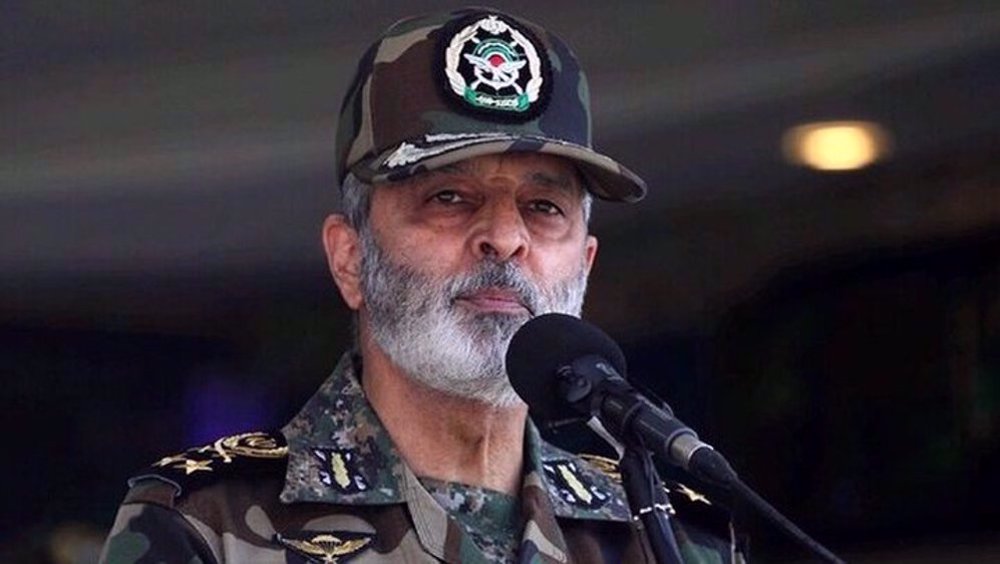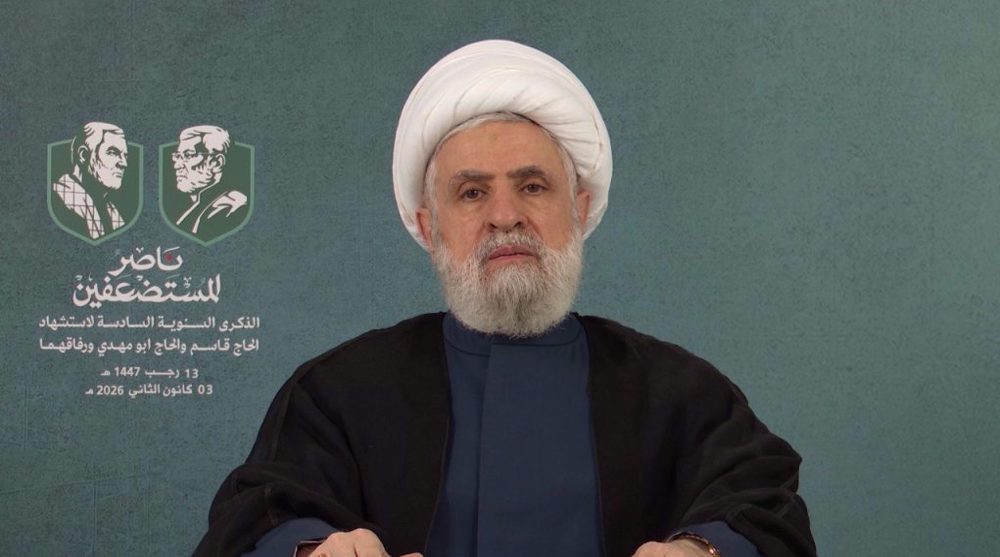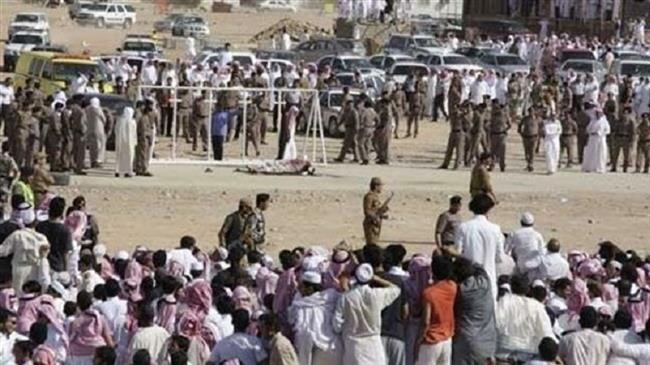Saudi regime is source of radicalism, uses ‘Iran card’ as cover for failures: Top diplomat
Iran’s Deputy Ambassador to the United Nations has described the Saudi regime as a source of “hatred” and “radicalism,” accusing Riyadh of using the “Iran card” as a cover for its “backwardness” and malign ambitions.
Es'haq Al-e Habib said that Saudi "despots" can not go on forever making accusations against Iran as a cover for failures stemming from their “primitive medieval dogmas”.
The diplomat added that Saudi Arabia’s “destructive” policies should not be overlooked despite the regime’s tendency to blame others for its mistakes.
The comments came in response to Saudi Foreign Minister Ibrahim Abdulaziz al-Assaf’s Friday remarks in the 74th session of the United Nations General Assembly. Assaf leveled terrorism charges against Iran and called for added financial pressure on the country.
Rejecting the charges, Al-e Habib said that Riyadh had used fear-mongering against Tehran in order to win western support for its “stupidity, be it in either Syria or Yemen.”
Citing Iran’s participation in anti-terror campaigns across the region, the deputy ambassador said: “It was Saudi Arabia and not Iran which provided billions of dollars worth of arms to the Daesh Takfiri terrorist group and affiliated terrorists in Syria.”
Al-e Habib further pointed to the high number of Saudi nationals among the main suspects of the September 11, 2001 terrorist attacks, adding that the Saudi regime has turned into a hotbed for “radicalism,” with many terrorist leaders being known to have studied in Saudi-backed schools.
At least 15 of the 19 hijackers who flew passenger planes into the World Trade Center on that occasion came from Saudi Arabia. There are also numerous official reports that suggest the attackers were funded by some Saudi royals.
The deputy ambassador went on to list a number of the Saudi regime’s erroneous policies, such as the Saudi onslaught in Yemen, the regime’s beheading of peaceful political dissidents, lack of democracy and respect for human rights and role in suppressing democratic movements in the region.
"It is Saudi who has waged a full-fledged war against its poorest neighbor Yemen while on a daily basis committing war crimes and crimes against humanity," he said.
"It is Saudi that continues beheading peaceful political opponents, and has upgraded its weapon of choice from sword to saw," he said, in a jab at the Riyadh regime's murder of dissident journalist Jamal Khashoggi last October.
Al-e Habib further pointed to Riyadh’s all-out blockade of Qatar and the detention of Lebanese Prime Minister Saad Hariri in 2017 as instances of Saudi Arabia’s flawed regional policies.
Al-e Habib also highlighted the Saudi regime’s support for the former Iraqi dictator Saddam Hussein's war against Iran, accusing Riyadh of having a role in the death of “more than 250,000” Iranians who died in the conflict.
Referring to Iran's recently presented regional Hormuz Peace Endeavor (HOPE), the envoy said: “Today, while Iranians are calling for regional talks in a bid to stabilize the Persian Gulf region, it is once again the Saudis who are stubbornly insisting on their malevolent measures and policies.”
The HOPE initiative comes against the backdrop of tensions in the Persian Gulf.
Several tankers and commercial vessels have come under suspicious attacks by unknown parties while attempting to cross the strategic Strait of Hormuz in past months amid increasing US troop presence in the region. Washington and some of its allies have pinned the incidents on Iran without providing evidence.
Riyadh and Washington have also recently ratcheted up tensions against Iran by holding it responsible for the September 14 Yemeni drone strikes on the oil-rich kingdom’s oil facilities.
Addressing Riyadh’s recent fear mongering against Tehran, the deputy ambassador urged Saudi Arabia to avoid mistakenly believing that sewing regional instability would improve the kingdom’s regional standing.
Al-e Habib called Saudi Arabia a “tragic threat” for regional and international peace with its “medieval ideology” and abundant inventory of modern weaponry.
The deputy ambassador urged the international community to stop Saudi “mockery” and “abuse” of international bodies such as the UN with its misguided policies.
Saudi criminals are seeking to openly mock “humanity, justice and peace”, he said.
VIDEO | Press TV's news headlines
Hamas: Israel escalating ceasefire violations in Gaza
Venezuela's government declares unwavering unity behind Maduro
VIDEO | Global outcry over Venezuela president abduction
Iran keeps wheat import subsidies despite cutting other food supports
Venezuelan military stands with acting president after US kidnapping of Maduro
VIDEO | Press TV's news headlines
VIDEO | Protesters in Toronto slam US kidnapping of Venezuelan president















 This makes it easy to access the Press TV website
This makes it easy to access the Press TV website